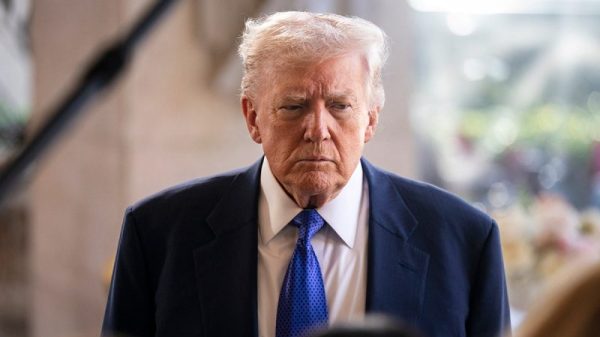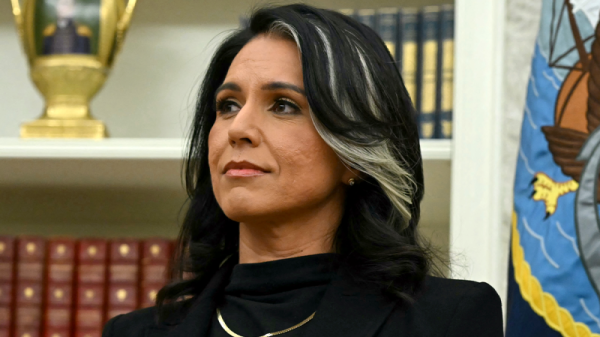When Donald Trump announced his presidential candidacy in June 2015, he offered the world an overview of his financial empire. After all, tradition dictated that candidates for the presidency share information on their income and wealth, under the assumption that voters and the media would want to vet any potential concerns. So Trump gave everyone something to look at.
His net worth, he said? $9 billion. Just a smidgen more than the $4 billion Forbes had calculated. But, then, Forbes probably didn’t think that Trump’s personal brand and licensing opportunities were worth about $3 billion alone.
Nonetheless, the precedent for Trump’s political career was set: He was an enormous success, beyond measure, and reports to the contrary were the real lies.
The problem, though, is that Trump allegedly had been making similar overvaluations to potential lenders. And that came to the attention of New York Attorney General Letitia James (D).
It’s not really a mystery how that happened. In early 2019, after having been thrown under the bus by Trump, his former attorney Michael Cohen offered testimony before a Democrat-led House committee. In that testimony, Cohen described what he alleged was a systematic inflating of such valuations by Trump and the Trump Organization. Cohen came armed with documents showing how Trump’s reported net worth more than doubled from June 2012 to March 2013 as the businessman decided that his brand was worth billions on its own.
(This is the point at which we interject to note that Trump once said that his net worth depended in part on such established financial criteria as “my own feelings.”)
Cohen was asked whether he had ever witnessed Trump explicitly misrepresenting his worth to a potential lender.
“These documents and others were provided to Deutsche Bank on one occasion where I was with them,” Cohen replied, “in our attempt to obtain money so that we can put a bid on the Buffalo Bills.”
You can see why Deutsche Bank might not be thrilled with this particular bit of inflation. If they are offering Trump a loan based on his representation of his net worth, that the net worth might be significantly overstated is a potential problem.
This alleged practice is a central part of the lawsuit filed against Trump and the Trump Organization by James, the New York attorney general. James won election in 2018 in part on a platform of targeting Trump directly. Cohen’s testimony a few months later created an avenue for her to do so.
On Wednesday, James argued in a filing that one component of her suit could be adjudicated immediately: the extent to which Trump overstated his net worth. Over the period from 2011 to 2021, the filing claimed, Trump had inflated his net worth by anywhere from $812 million to $2.2 billion. James asked the judge in the case, Arthur F. Engoron, for a summary judgment to that effect.
James’s calculation appears to derive largely from overvaluations of individual properties, including Trump Tower in New York and Mar-a-Lago in Florida. The filing, according to a New York Times report, notes that the former president’s flagship tower in Manhattan was alone overvalued by almost a third of a billion dollars in 2019. That year, Forbes put Trump’s net worth at just over $3 billion in total.
By most measures, Trump’s net worth took a big hit while he was president. That was because — in part — of the decline in interest in commercial real estate space, a decline that the internet triggered even before the coronavirus pandemic. Forbes’s current estimate is that he’s worth $2.5 billion. Bloomberg tracks the world’s 500 richest billionaires; Trump doesn’t make the cut.
It is unclear whether James will prevail, obviously. An assertion from her office that this practice was common and has been proved does not mean that it is.
But there exists other evidence that Trump was happy to overstate his net worth when he found it useful — politically, if not when applying for loans. That evidence comes from Trump himself.
When Donald Trump announced his presidential candidacy in June 2015, he offered the world an overview of his financial empire. After all, tradition dictated that candidates for the presidency share information on their income and wealth, under the assumption that voters and the media would want to vet any potential concerns. So Trump gave everyone something to look at.
His net worth, he said? $9 billion. Just a smidgen more than the $4 billion Forbes had calculated. But, then, Forbes probably didn’t think that Trump’s personal brand and licensing opportunities were worth about $3 billion alone.
Nonetheless, the precedent for Trump’s political career was set: He was an enormous success, beyond measure, and reports to the contrary were the real lies.
The problem, though, is that Trump allegedly had been making similar overvaluations to potential lenders. And that came to the attention of New York Attorney General Letitia James (D).
It’s not really a mystery how that happened. In early 2019, after having been thrown under the bus by Trump, his former attorney Michael Cohen offered testimony before a Democrat-led House committee. In that testimony, Cohen described what he alleged was a systematic inflating of such valuations by Trump and the Trump Organization. Cohen came armed with documents showing how Trump’s reported net worth more than doubled from June 2012 to March 2013 as the businessman decided that his brand was worth billions on its own.
(This is the point at which we interject to note that Trump once said that his net worth depended in part on such established financial criteria as “my own feelings.”)
Cohen was asked whether he had ever witnessed Trump explicitly misrepresenting his worth to a potential lender.
“These documents and others were provided to Deutsche Bank on one occasion where I was with them,” Cohen replied, “in our attempt to obtain money so that we can put a bid on the Buffalo Bills.”
You can see why Deutsche Bank might not be thrilled with this particular bit of inflation. If they are offering Trump a loan based on his representation of his net worth, that the net worth might be significantly overstated is a potential problem.
This alleged practice is a central part of the lawsuit filed against Trump and the Trump Organization by James, the New York attorney general. James won election in 2018 in part on a platform of targeting Trump directly. Cohen’s testimony a few months later created an avenue for her to do so.
On Wednesday, James argued in a filing that one component of her suit could be adjudicated immediately: the extent to which Trump overstated his net worth. Over the period from 2011 to 2021, the filing claimed, Trump had inflated his net worth by anywhere from $812 million to $2.2 billion. James asked the judge in the case, Arthur F. Engoron, for a summary judgment to that effect.
James’s calculation appears to derive largely from overvaluations of individual properties, including Trump Tower in New York and Mar-a-Lago in Florida. The filing, according to a New York Times report, notes that the former president’s flagship tower in Manhattan was alone overvalued by almost a third of a billion dollars in 2019. That year, Forbes put Trump’s net worth at just over $3 billion in total.
By most measures, Trump’s net worth took a big hit while he was president. That was because — in part — of the decline in interest in commercial real estate space, a decline that the internet triggered even before the coronavirus pandemic. Forbes’s current estimate is that he’s worth $2.5 billion. Bloomberg tracks the world’s 500 richest billionaires; Trump doesn’t make the cut.
It is unclear whether James will prevail, obviously. An assertion from her office that this practice was common and has been proved does not mean that it is.
But there exists other evidence that Trump was happy to overstate his net worth when he found it useful — politically, if not when applying for loans. That evidence comes from Trump himself.





















